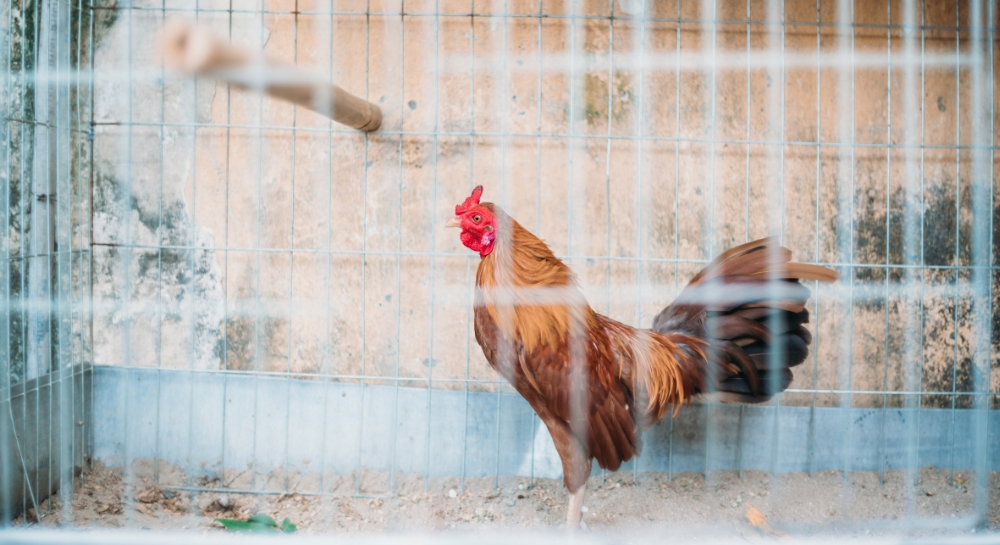[Blog] Post-Brexit Animal Welfare: Do animals have feelings?
Date 27.02.2019
27.02.2019
Simon Sneddon, our Senior Lecturer in Law reflects on how Brexit may impact animal welfare laws and the recent Government ruling on animal sentience…

Simon Sneddon
In a little over a month, unless things change, the UK will leave the European Union. You’ve probably read about it. The European Union (Withdrawal) Act 2018, which received Royal Assent on 26 June last year, will come into effect on “exit day” and repeals the European Communities Act 1972.
This will not involve a massive change on 30 March, however. Section 2 of the Act says “all EU-derived domestic legislation, as it has effect in domestic law immediately before exit day, continues to have effect in domestic law on and after exit day” and section three applies the same standard to “Direct EU legislation.”
What seems to be of concern, in relation to animal welfare as much as anything else, is what happens from then on. As things stand there is no compunction on the UK to carry on in the same direction as the rest of the EU.
Part of the myth about the UK population is that we care more about animals more than we do about people – this is a trope which has been repeated for decades. Judging how much people “care” about an issue is very tricky though. Some use donations to charity as a cipher, which is as good a way as any. A few years ago, the Guardian reported that donations to animal charities (RSPCA, Dogs Trust, Cats Protection League and so on) only amounted a 7% of the total amount donated to UK charities. Broadening this to “environmental charities”, on the basis that some of the environmental charities do work to protect animals, and legacy donations, on the basis that people leave money in their will after some thought, rather than on a whim, this figure rises to 22%. Health charities, on the other hand, garnered “62% of legacy donations.”
This does not mean that the UK is a nation of animal-haters though, despite recent media reports about cruelty to animals and dog fighting being streamed online (BBC, Lancashire Post, and so on).
YouGov carried out a survey this time last year, which asked people which type of charity they would prefer to give money to. When the choice involves identifying recipient charities for theoretical donations, respondents were much keener to identify animal charities (34%) than the evidence of actual donations (7%) suggests.
In November 2017, the Green Party put forward a proposed amendment to the European Union (Withdrawal) Bill which would have enshrined the concept of “animal sentience” into UK law post-Brexit. The proposal was voted down by MPs, and shortly afterwards, a YouGov survey showed that 70% of respondents thought the MPs decision was wrong and that “It should be legally recognised that animals have awareness and feelings.” (there is a side issue here about the extent to which MPs truly reflect the views of their constituents, but I’m going to duck it here).
A brief consultation exercise was carried out between December 2017 and January 2018, based on a short outline Draft Animal Welfare (Sentencing and Recognition of Sentience) Bill, but on the same day the consultation closed, the Environment, Food and Rural Affairs Committee recommended delaying any introduction of animal sentience recognition because although “the idea and intention behind the clause received strong support” (para 25), its “vagueness and ambiguity… [introduced]… a degree of legal unpredictably” (para 29).
Last summer, Defra’s response to the consultation was quite scathing. In Para 7 of the response, they say:
“The concepts enshrined in the draft Animal Welfare (Sentencing and Recognition of Sentience) Bill are important and worthwhile. They deserve better than to be treated in a cavalier fashion yet the impression given to us is one of haste. It appears that this draft Bill has been presented to the public – and Parliament – in a far from finished state. Many of the key concepts in the Bill remain undefined, so limiting the value of our scrutiny, while the lack of a formal regulatory impact assessment is a further troubling matter. The absence of such a document further emphasises the impression that this legislation has not been properly thought through before publication.”
They recommended that this part of the draft Bill be separated out and that the government carries out a proper regulatory impact assessment before submitting the Bill to parliament at an as-yet-unspecified date.
Current UK law is centred around the Animal Welfare Act 2006, sections 4-8 cover animal welfare issues such as unnecessary suffering, mutilation, docking of dogs’ tails, poisoning, and fighting. This does not, however cover all animals. Section 2 of the Act is very specific on this, saying:
“An animal is a “protected animal” for the purposes of this Act if—
- (a) it is of a kind which is commonly domesticated in the British Islands,
- (b) it is under the control of man whether on a permanent or temporary basis, or
- (c) it is not living in a wild state.”
Wild animals, therefore are not covered by this legislation. Some (notably Badgers) are deemed to be worthy of their own specific legislation (Protection of Badgers Act 1992), but others are not. Some activities, for example hunting wild mammals with dogs, are prohibited (Hunting Act 2004), but there is no overarching protection of all animals.
At an EU level, Article 13 of the TFEU says:
“In formulating and implementing the Union’s agriculture, fisheries, transport, internal market, research and technological development and space policies, the Union and the Member States shall, since animals are sentient beings, pay full regard to the welfare requirements of animals, while respecting the legislative or administrative provisions and customs of the Member States relating in particular to religious rites, cultural traditions and regional heritage.”
This clearly shows that, rather than worrying about what will happen once UK law and EU law diverge in a post-Brexit world, focus needs to be given to why they have already diverged.
Do animals have feelings? My view is yes, of course they do.